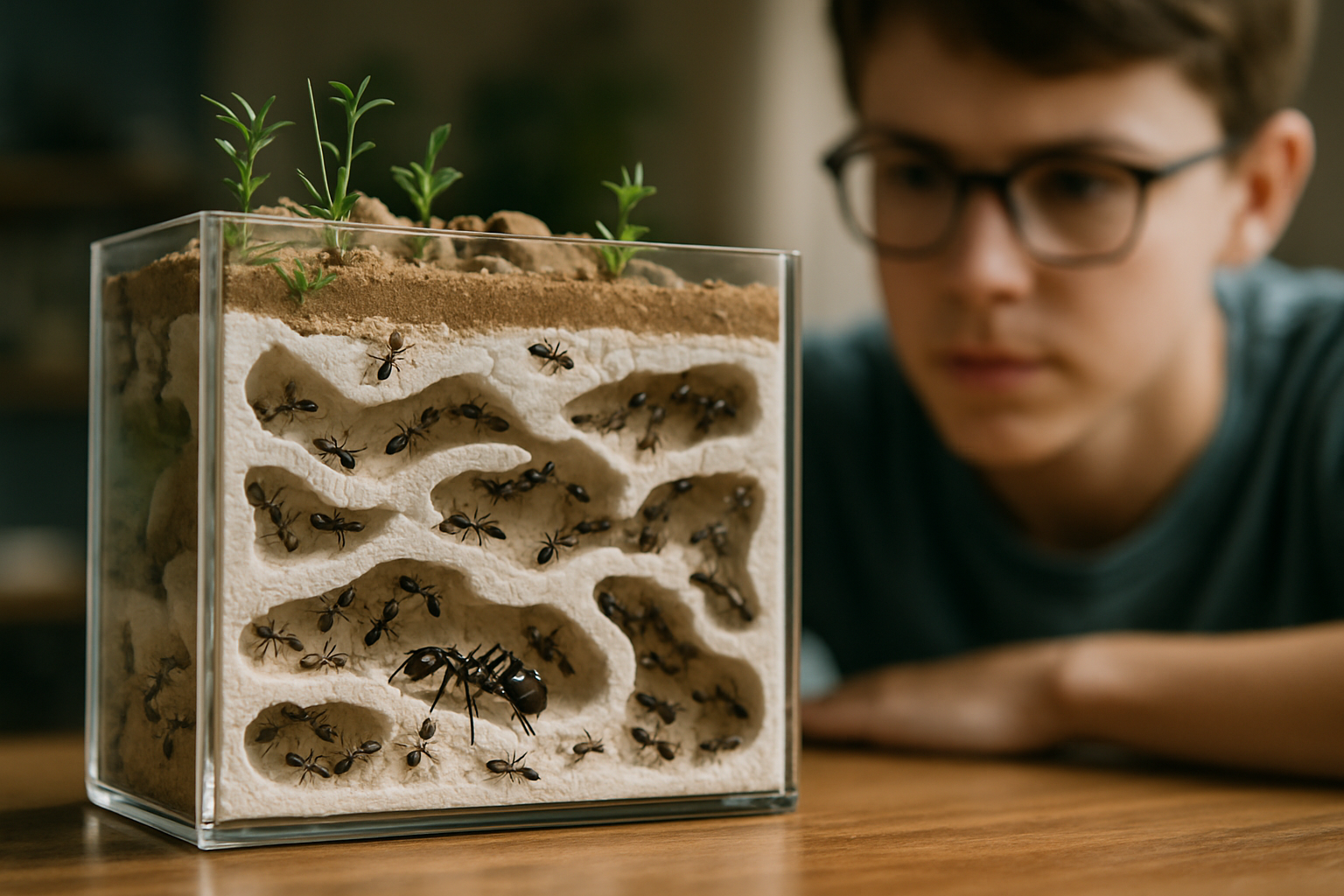The Intriguing World of Ant Farms: A Comprehensive Guide
Ant farms have been a fascinating pastime for both children and adults for decades. These miniature ecosystems offer a unique window into the complex social structures and industrious nature of ants. This article delves into the history of ant farms, their current popularity, and the potential impact they have on the market.

The Origins of Ant Farms
Ant farms, also known as formicariums, were first patented in 1901 by French entomologist Charles Janet. However, they didn’t gain widespread popularity until the mid-20th century when Uncle Milton’s Ant Farm hit the market in 1956. This innovative product allowed people to observe ants’ intricate tunneling systems and social behaviors in a safe and contained environment.
The Modern Ant Farm: A Blend of Science and Entertainment
Today, ant farms have evolved into sophisticated habitats that cater to the needs of various ant species. They come in a variety of designs, from traditional sand-filled models to modern gel-based habitats that provide both nutrition and tunneling medium for the ants. Some even incorporate LED lights to enhance visibility and add an aesthetic appeal.
The Market Impact of Ant Farms
The global market for ant farms is steadily growing, with an estimated value of $20 to $100 per unit, depending on the complexity and size of the farm. This niche market has seen a surge in interest due to the rise of STEM (Science, Technology, Engineering, and Mathematics) education, where ant farms are used as educational tools to teach children about biology and ecology.
The Science Behind Ant Farms
Ant farms provide a glimpse into the complex social structure of ant colonies, which are matriarchal societies led by a queen. Worker ants, which are all females, perform various tasks such as foraging for food, defending the colony, and caring for the young. Observing these behaviors in an ant farm can provide valuable insights into ant communication, cooperation, and division of labor.
The Ethical Considerations of Ant Farming
While ant farms offer educational and entertainment value, it’s essential to consider the ethical implications of keeping ants in captivity. Ants are highly social creatures with complex needs, and a small plastic enclosure may not provide an adequate environment. Therefore, potential ant farm owners should research the needs of the specific ant species they wish to keep and ensure they can provide a suitable habitat.
In conclusion, ant farms are a fascinating blend of science and entertainment, offering a unique window into the world of these industrious insects. As their popularity continues to grow, it’s crucial to balance our curiosity and desire for knowledge with respect and care for these remarkable creatures.






